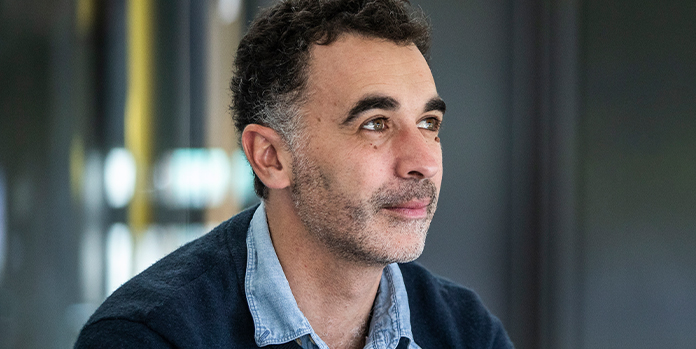When Simon Harari (OM 2001) was Captain of School at Melbourne Grammar, the technology that would define his career had not yet been invented. Now, as one of a handful of digital content policy experts who make decisions that govern online communities, Simon says his career has been shaped by a willingness to act before feeling certain.
“If you’re willing to be uncomfortable for a while, that’s how you learn,” Simon says. “There is often no single right answer to these questions. You’re trying to strike an elusive balance between freedom of expression and the safety of users.”
Courage in the face of ambiguity
With a resume that includes Head of Content Policy (APAC) at Facebook and Public Policy Manager (APAC) at WhatsApp, Simon says openness to alternative views and an ability to step up have been essential to his work.
“When you’re writing and enforcing digital content policies for companies like Facebook and WhatsApp, your decisions apply to billions of users across hundreds of languages and cultures,” Simon explains. “Even if we’re right 99% of the time, we’re still going to be making a lot of mistakes at that scale. At some point, a decision has to be made about the policy that will work best, and someone has to be accountable for it. You can reduce the risk and consequences of mistakes if you spend a lot of time listening to diverse perspectives before you make a call.”
“I think this idea of taking on responsibility with humility is something Melbourne Grammar has embedded in its value system, and that tends to stand students in good stead in the long run,” Simon adds.
An unpredictable path to success
Having spent time after completing degrees in Arts and Law, backpacking around South America, travelling the Trans-Siberian Railway in the middle of a freezing January, and working on the Tiwi Islands for two years, Simon found himself in Washington studying for a Master of Science in Foreign Service in 2013.
After a few short-term policy positions, Simon began looking more broadly for a new role. “Job-hunting after a career pivot can be tough. I had 140 coffee chats before I landed a policy gig at micro-blogging platform Tumblr,” he explains. “I still have all the names on a spreadsheet.”
Just a year later, Simon was part of high-level White House discussions on how to counteract issues such as violent extremism online. “The key is not to be scared to take the jump into something, even if you don’t feel fully ready or understand every aspect,” he says. “By staying humble and being willing to ask questions, I eventually felt confident enough with the issues to sit in the White House with President Obama and speak about them without embarrassing myself. At least, I think I didn’t embarrass myself. You’d have to ask him.”
With technological change only continuing to gather pace, Simon says he is more convinced than ever that his career will not be about following a predetermined path.
“In my experience, the opportunities that make the difference are the ones you get blindsided by,” he says. “It could be a chance encounter in a supermarket or on the sidelines of a school sports day that sets you off on the next adventure. I’ve recently shifted into doing my own tech policy consulting, and I’m speaking to people who have fantastic ideas about how to harness new technologies for the good of society. I wouldn’t have met them if I’d just been sitting at my laptop all day.”
“As we start thinking about the consequences of new technology like generative AI, we’ll need even more people who are willing to think through the trade-offs between technological advancement and societal disruption,” Simon adds. “There’s no settled curriculum for that, at Melbourne Grammar or anywhere else but I believe knowing what to do in the face of uncertainty is a skill anyone can learn.”



